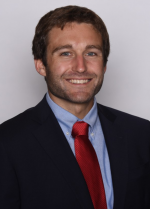Assistant Professor, Global Studies

Education:
Ph.D. in Government, Harvard UniversityM.A. in Government, Harvard University
M.Soc.Sc. in Sociology, University of Cape Town
B.A. in Political Science, Yale University
Home Department:
Fields of Study:
Email: thaler@global.ucsb.edu
Bio:
Kai M. Thaler is an Assistant Professor of Global Studies. He received his Ph.D. in Government from Harvard University in 2018. He also holds an M.A. in Government from Harvard, an M.Soc.Sc. in Sociology from the University of Cape Town, and a B.A. in Political Science from Yale University. Thaler’s research focuses on conflict and violence from the local to the global level. He has studied issues ranging from violence against civilians in civil wars and post-conflict politics in Africa and Latin America, to violent crime in South Africa, to genocide and mass killing in Southeast Asia. His current book project, When the Rebels Win: State Power and Public Interests after Civil Wars, examines how the ideals and goals around which rebel groups are organized affect the state building and service provision policies and practices they pursue if they gain control of an internationally-recognized state. Thaler also has research and teaching interests in qualitative and mixed methods research methodology.Prior to his Ph.D., Thaler was a research design and coordination consultant for Handicap International for work on armed violence-related disabilities in Colombia, Haiti, Pakistan, and Uganda; a researcher at the Centre for Social Science Research at the University of Cape Town for a study of everyday violence in South Africa; and a DGARQ/FLAD Research Fellow at the Portuguese national archives, where he studied reports of rebel violence against civilians in Angola and Mozambique in the archives of the Portuguese colonial secret police.
During the 2018-2019 academic year, he will be on leave as a postdoctoral fellow at the Sié Chéou-Kang Center for International Security and Diplomacy at the University of Denver’s Josef Korbel School of International Studies.
